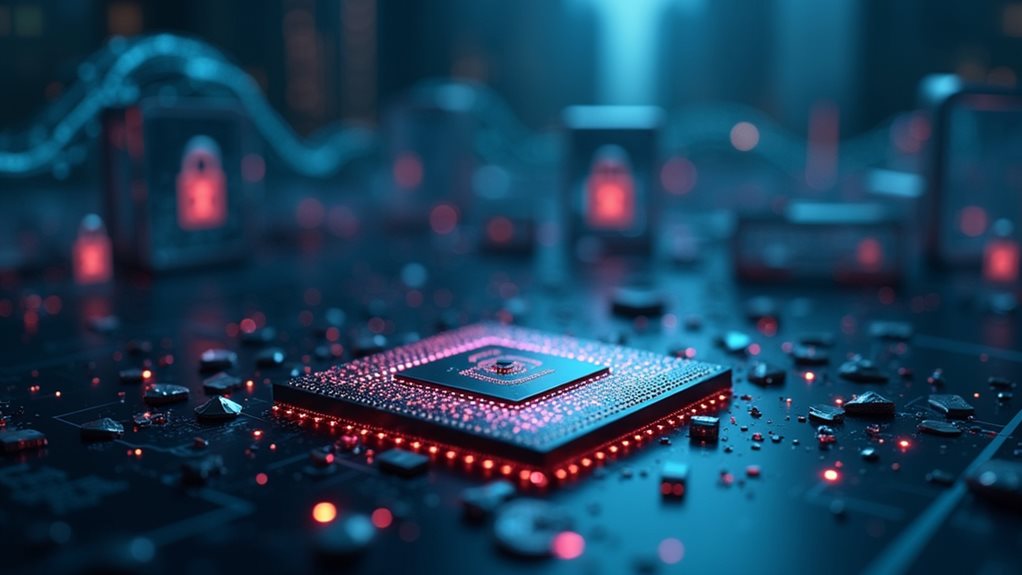Fraudsters are exploiting Cerebras Systems’ AI reputation to push a bogus cryptocurrency token. The scammers shamelessly steal Cerebras’ imagery and technical descriptions while promising absurd returns through fake AI supercomputing power. In reality, Cerebras’ legitimate CS-2 and CS-3 systems have zero connection to cryptocurrency – they’re used for medical research and energy computation. This shameless scheme has already burned numerous victims who trusted the Cerebras name. The full story reveals just how crafty these crypto con artists can get.

While Cerebras Systems Inc. continues pushing the boundaries of AI chip technology, opportunistic scammers have brazenly hijacked the company’s reputation to promote a fake cryptocurrency token. The fraudsters are peddling worthless digital tokens by falsely claiming integration with Cerebras’ cutting-edge wafer-scale AI chips. Nice try, scammers.
Scammers exploit Cerebras’ AI innovations, creating bogus crypto tokens and false claims about wafer-scale chip integration.
The con artists have crafted an elaborate facade, complete with stolen company imagery and technical jargon stolen straight from Cerebras’ actual technology descriptions. They’re promising investors ridiculous returns and – get this – exclusive access to AI supercomputing power that simply doesn’t exist. The whole thing reads like a bad sci-fi novel, except people are losing real money. Similar to the Operation Crypto Runner initiative launched in 2022, authorities are working to combat these cryptocurrency-related crimes.
Cerebras, the legitimate AI hardware powerhouse, is watching its brand take hits. Their actual technology – which includes the revolutionary CS-2 and CS-3 systems that have shattered AI training speed records – has nothing to do with cryptocurrency or blockchain. Zero. Nada. The company’s proprietary chips support vital work in medical research and energy computation. Founded in 2015 by a team of experts including Andrew Feldman, the company has maintained a steadfast focus on advancing AI computing capabilities. The company’s recent launch of the Condor Galaxy network represents their continued commitment to legitimate AI innovation. But now they’re forced to waste time and resources fighting off fraudulent associations.
The scam token’s marketing is a masterclass in deception. Its creators have cobbled together plagiarized whitepapers and smart contracts, sprinkled with just enough AI buzzwords to hook tech-savvy investors. They’re claiming their token somehow uses Cerebras’ GPU technology for mining – a complete fabrication that ignores how Cerebras’ hardware actually works.
The crypto community has started sounding alarms. Message boards are lighting up with warnings, and regulatory advisories are highlighting the risks. Meanwhile, Cerebras has been crystal clear: they have no involvement with any cryptocurrency projects.
The victims’ stories are depressingly similar – they trusted the Cerebras name, bought the tokens, and watched their investments evaporate. It’s a stark reminder that in the wild west of crypto, even the most prestigious tech reputations can be weaponized by sophisticated fraudsters.









